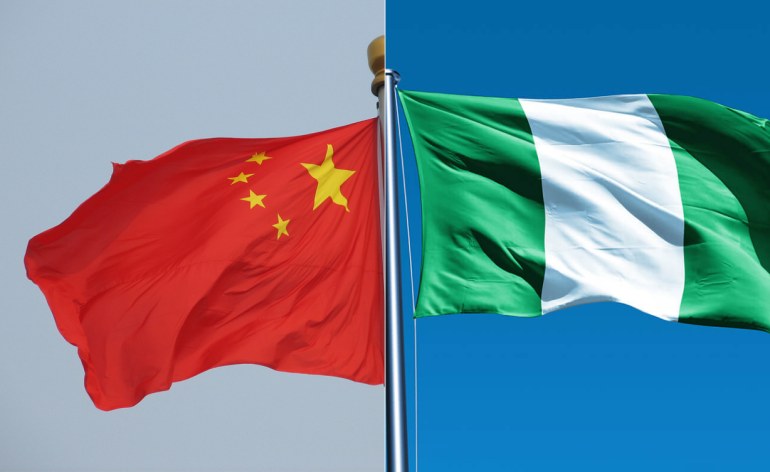There are indications that the Central Bank of Nigeria, CBN, may have hit a comfort zone in the Bilateral Currency Swap Agreement, BCSA, it signed with the People’s Bank of China (PBoC), if the transaction figures tell it all.
Vanguard investigations show a relative stability across all the dimensions of the BCSA especially in the area of liquidity, exchange rate, demand management and projections to terminal date.
The agreement which marked one year of implementation last month, was signed on April 27, 2018, to ease demand pressure on the country’s supply of foreign exchange.
Vanguard investigations show adequate supply of the Chinese Yuan in the weekly intervention of the CBN in the foreign exchange market with demand averaging CNY135 million per month.
This may have accounted for the relative stability enjoyed by the end users with exchange rate averaging CNY1/N51.9 over the past one year. The BCSA exchange rate at commencement was on the average of CNY1/N53.17.
By the second trading week this month the rate had trended further down to as low as CNY1/N46, showing significant appreciation of the Naira against the Chinese currency under the agreement.
Also the apex bank appeared to have hit demand-supply equilibrium in the past three months with average volume at lower range of CNY33.4 million per trading session, down from peak CNY69.7 million.
Short tenured forwards segment
With the average trading volume of about CNY1.74 billion in the first anniversary of the agreement the CBN appears to be within huge comfort zone in the maximum limit of CNY15 billion for three years provided in the BCSA.
The CBN’s CNY injections were in the spot and short tenured forwards segment of the inter-bank foreign exchange market, and the interventions were for Renminbi (CNY)-denominated Letters of Credit requests in the agricultural and raw materials sectors.
The apex bank’s Director, Corporate Communications Department, Mr Isaac Okorafor, has expressed satisfaction over the stability of the foreign exchange market since the commencement of the BCSA which, according to him, was largely due to sustained intervention by the bank.
He assured that the apex bank would remain committed to ensuring that all the sectors of the forex market continue to enjoy access to the needed foreign exchange.
He urged Nigerians to continue to support the policies of CBN aimed at boosting the production capacity of local industries as well as creating jobs.
Okorafor stressed that the effort of the bank had continued to stabilize the foreign exchange market. This, according to him, had sustained the level of confidence investors and the public had in the Naira.
He also noted that the demand management approach introduced by the Bank had yielded positive results.
He lauded players in the various sectors of the FOREX market for their contributions to the prevailing stability.
Okorafor said in spite of activities of speculators, the CBN was ready to play its interventionist role in the market.
The availability of the Chinese currency, Okorafor said, has eased the pressure on the Nigerian foreign exchange market.
Public policy analysts have posited that the Currency Swap Agreement between Nigeria and China is significant in many respects.
The deal, according to them, will allow trading between the two countries to be done directly in their local currencies without any need for the USdollar, and enabling the Renminbi (Yuan) to flow freely within the Nigerian banking system.
This development, they argue, will improve bilateral trade between the two countries and engender foreign investment flows and economic cooperation beneficial to both parties. The significant cut on dollar demand by firms and investors doing business across the two countries will help protect their financial markets and boost their respective foreign reserves.
However, concerns remain amongst the analysts as to the potency of the Currency Swap Agreement to fully address the challenge of dollar demand by importers, since imports from China account for only 20 percent of Nigeria’s annual total imports.
The current annual import bill of Nigerian enterprises moving goods into the country from China reportedly stands at NGN 1.7 Trillion, meaning that the swap deal amount of NGN 720 Billion can only take care of about 15 percent of Nigeria’s annual total imports from China. The remaining 85 percent will definitely still require USdollars. In spite of the concerns raised, most analysts believe the Currency Swap Agreement is a step in the right direction.
This set of analysts argue that the reduction in dollar demand, expected to be achieved through the swap deal, will complement the CBN’s current intervention via the Investors’ and Exporters’ FX Window in deepening stability in the market, by curbing the incidences of USdollar scarcity and exchange rate volatility.
They also note that the NGN/CNY swap agreement will be particularly favorable to Nigeria’s foreign reserves.
Since the inception of the BCSA, there have been different views on the performance of the agreement so far. Billy Gillis-Harry, the President of the Coalition of South-South Chamber
of Commerce, Industry, Mines, and Agriculture, said it is difficult to access CNY to finalize trade transactions with China and the USdollar is still being involved in the process.
However, contrary to Billy’s statement, Ojosipe Ayodele, Head of Enterprise Banking and Trade Finance at Stanbic IBTC Bank Plc, said that theBCSA has brought about more accessibility of the CNY to Nigerian businesses. He further stated that the BCSA has brought about better terms of trade for Nigerians and Chinese people in business working on linking the nations.
From the Nigerian perspective, the BCSA is an effort by the CBN to achieve foreign exchange stability for the Naira. The BCSA could become a vital tool towards realizing this. At the same time, some commentators say it might be opening up the economy to the risk of over-dependence on foreign products which the industrial sector could have produced domestically.
However, CBN seems to have taken steps to address this with foreign exchange restrictions on some items it considers Nigerian producers to be in competitive advantage.
Moreover, some analysts say a deliberate government effort at revamping the infrastructures and the industrial sector of the Nigerian economy to produce goods of global standards could be an effective strategy to enduring stability of the Naira.
Technological and economic growth
Furthermore, since the bulk of Nigeria’s imports are from China, the Nigerian
Government, they argue, could consider initiating partnerships with Chinese businesses in which both parties will benefit.
Emanating from such connections will be easy access to the Nigerian market and job creations that would lead to technological and economic growth.
The benefits of the BCSA are impressive, but some observers of the development believe that caution should pe applied to prevent the adverse effects, especially that of hampering the performance of the industrial and non-industrial sectors of the Nigerian economy, adding that those all hands should be on deck to ensure that despite Nigeria’s imports, the industrial and non-industrial sectors are being developed simultaneously until the sectors operate at their optimum.







